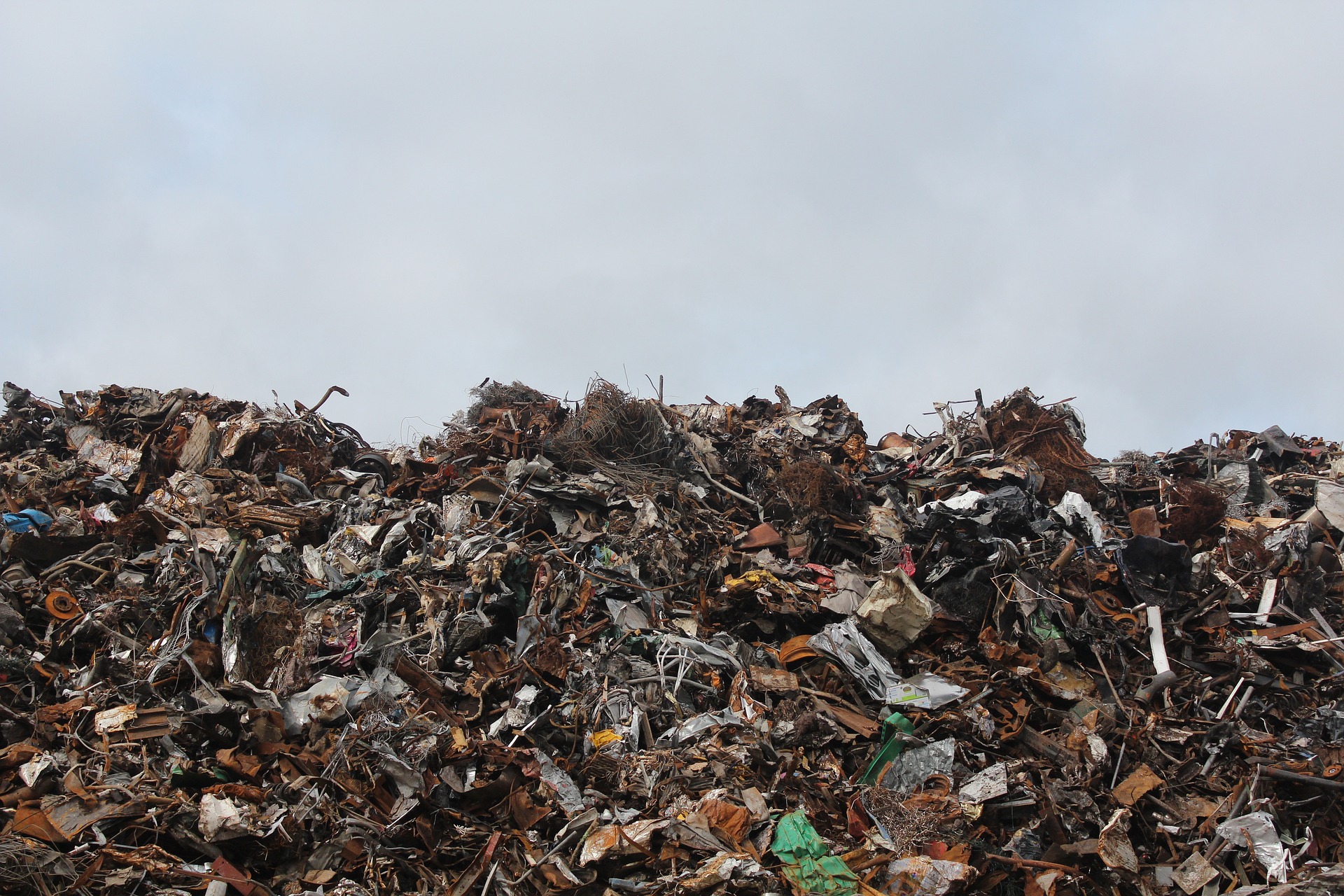

Objective and output of the activity was analysis of processes of 3 selected types of waste, their capacities, recovery methods and types of waste (technologies used, based on market research, consent analysis). The data are available to all (professional and general public) who can use it in the implementation of new projects and cooperation (on the incien.sk).
Work on this study was financed from a Tesco Foundation grant for 2021.
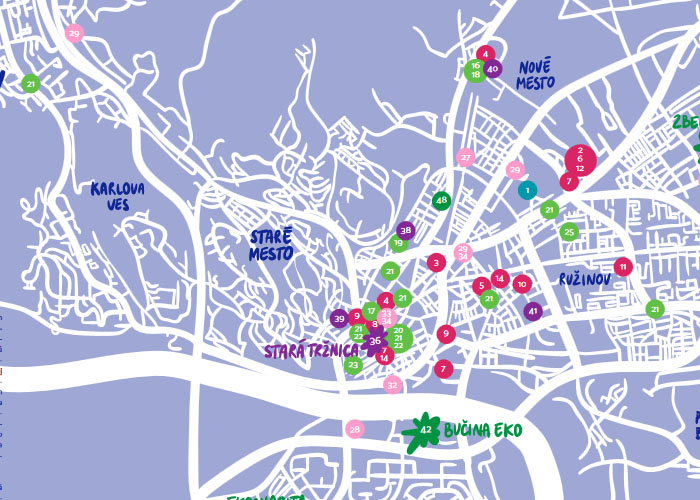
Circular maps were developed for a large range of users. The 8 biggest cities generated data about places that help us to live more sustainably (zero waste shops, shoe and clothes repair places, rental places, recycling centers etc.). We published these maps, and we are updating them regularly, so the users can always find actual data. After developing maps for Bratislava and other large cities, some small initiatives contacted INCIEN that wanted to develop a circular map for their city.
Circular maps were created with financial support from the Tesco Foundation.
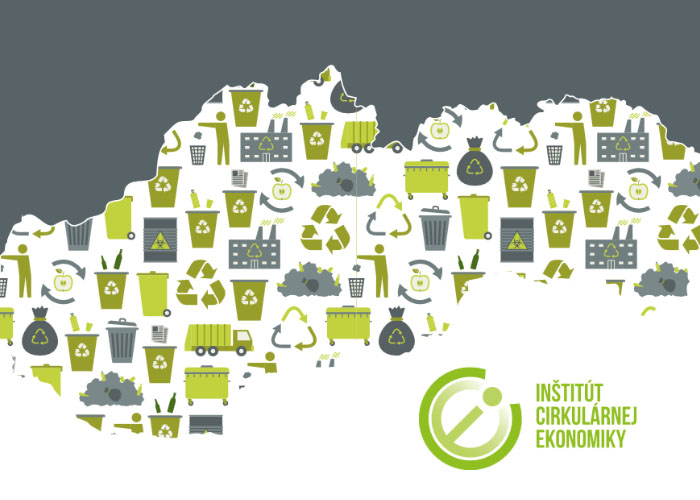
The publication maps the situation in the 8 largest cities of Slovakia in the field of waste management. In total, more than 550,000 tons of municipal waste is generated here, which is up to 23% of the amount of waste generated in Slovakia.
This study was financed from Friedrich Ebert Stiftung.
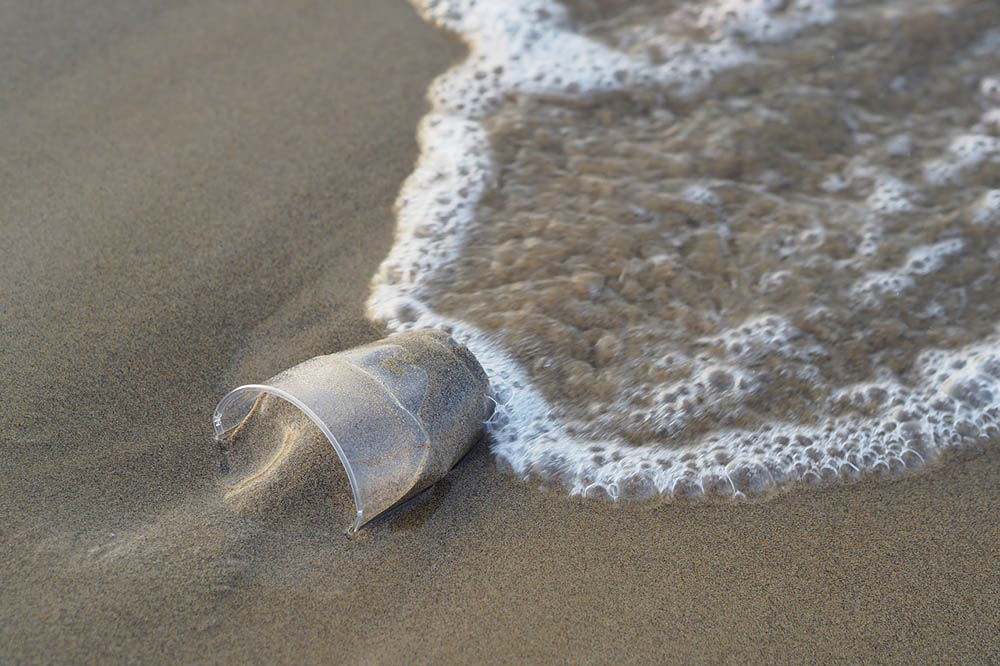
Disposable plastics form a not insignificant part of the waste, which ends up in landfills and also in the wild. Both cases are the environmental problem of our time. The aim of the CIRCULAR CUP project is to create a “closed loop” system of cups that are reusable and biodegradable.
The NUATAN CUP is made of material, Nonoilen, which is the result of long-term cooperation of the Faculty of Chemical and Food Technology of stu in Bratislava and the commercial company PANARA s.r.o.
It is a bioplastic that is unique in that it is made of renewable materials and 100% biodegradable. Cups are capable of biological decomposition by composting within two months without residual microplastics. Its uniqueness lies in the possibility of reuse and its resistance to high temperature – up to 100 degrees Celsius. That’s why glasses are also made for hot drinks and dishwashers.
How is the project implemented?
Reusable Nonoilen cups INCIEN provides small and medium-sized events for use during their course. We have created a manual for events to which INCIEN will provide cups. The project includes the collection of data on the efficiency of the system and material. Furthermore, information and data will be provided to Panara, as well as to the manufacturer as well as stu, department of plastics, rubber and fibers at ÚPSP FCHPT.
The project was created with the support of the Tesco Foundation Fund.
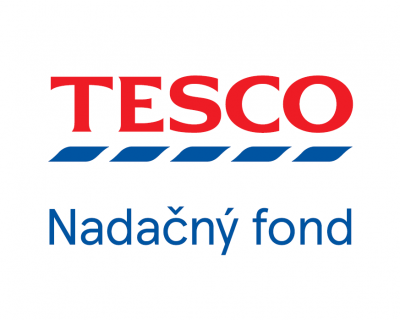
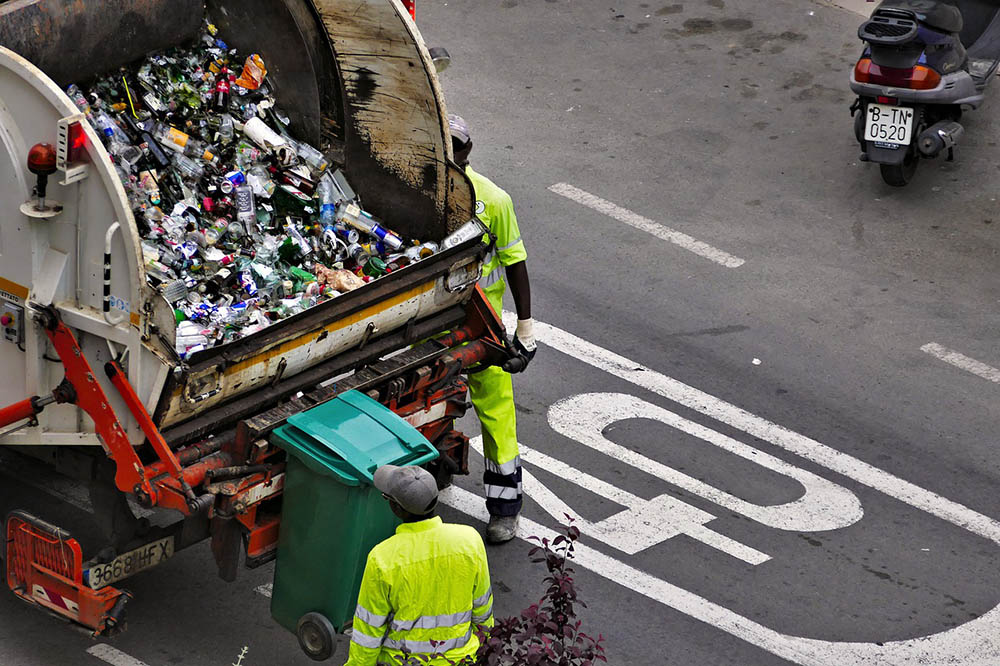
The aim of this activity is to get the professional public into the practice and vice versa – to show behind the scenes of circular and waste management. In this form of active participation in the so-called waste/selected material/raw material route, participants participate in an active discussion with professionals, technologists and workers at selected locations. This creates an exceptional association between public administrations, experts or even the public, who produce legislation and guidelines with the practice for which legislation is created.
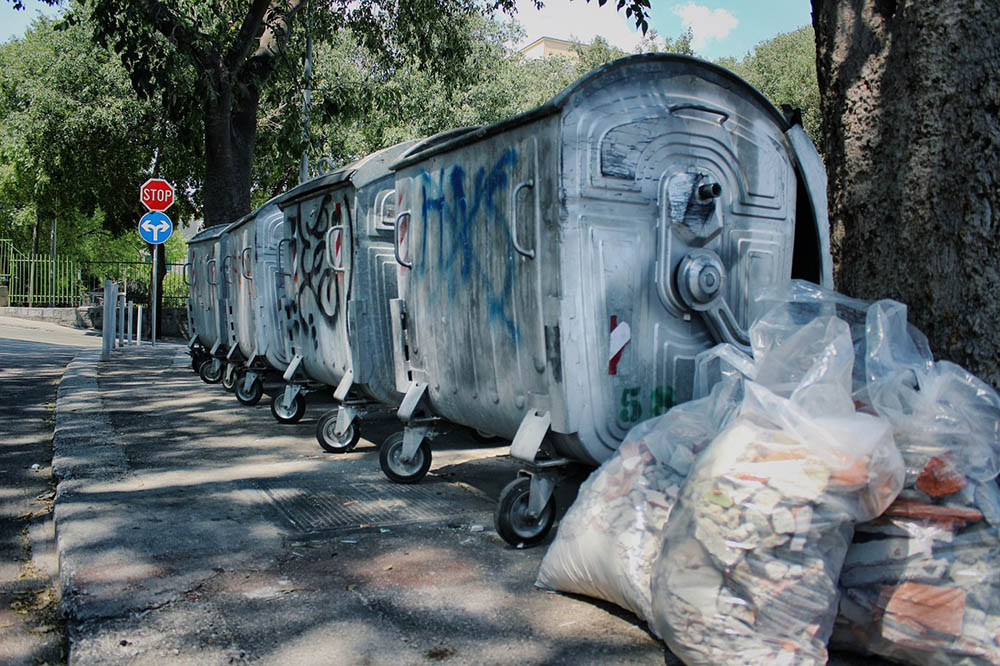
The “Places Gone” project maps places in Slovakia where waste ends or gets a second chance.
More than 12 million tonnes of waste are produced in Slovakia every year, of which 2.3 million tonnes are municipal waste.
We do not see landfills, incinerators, collection yards, recycling lines or wastewater treatment plants in everyday life, but they exist. But what do they look like, are these places invisible, and does it really matter where our waste ends up? We have decided to bring these places closer with this project, which talks about the life of the waste behind the container, highlights the need to perceive waste as part of life and draws attention to its impact.
https://www.incien.sk/mapa-miesta-prec/
The project was created thanks to the support of the Tesco Foundation Fund.


Since 2011, o.z. Punkt has organized in Bratislava a popular event, Good Market, attended by thousands of people. Punkt developed in cooperation with INCIEN a methodology which resulted in a significant decrease in the area of unnecessary municipal waste.
Festivals and other events should act responsibly and talk about important topics. Waste prevention is a social theme that affects everyone in no difference and should be a normal part of events. A good market or Pohoda Festival managed to significantly reduce municipal and residual waste, but also to bring awareness among its visitors.
t is important to spread the ideas of Zero Waste among other organizers of public events throughout Slovakia, and to encourage them to start producing less waste at their events.
At the expert workshops we share our experience, talk about the different stages of preparation and implementation of the event based on ZW and solutions of possible obstacles.
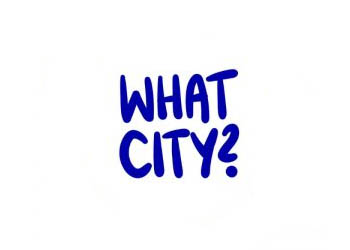
Expert Workshop WhatCity? This workshop was set up in response to the situation in Slovakia, where more than half of waste ends up in landfills and we are still lagging behind in meeting recycling targets as a country. The aim of the workshop was to reflect the major themes of climate change, the circular economy and urban development on a scale within which they can be addressed. We talked about the circular economy at the level of municipalities, how municipalities can use waste as sources of materials, and how to connect urban businesses and service suppliers in this common goal. The workshop was designed for representatives of municipalities, towns, higher municipality unit, municipal enterprises and the professional public.
The workshop presented practical examples of:
An excursion to the places where waste ends in Bratislava was also organized as part of the event.
We organized this event in cooperation with the civic association Punkt and the Ministry of Environment.
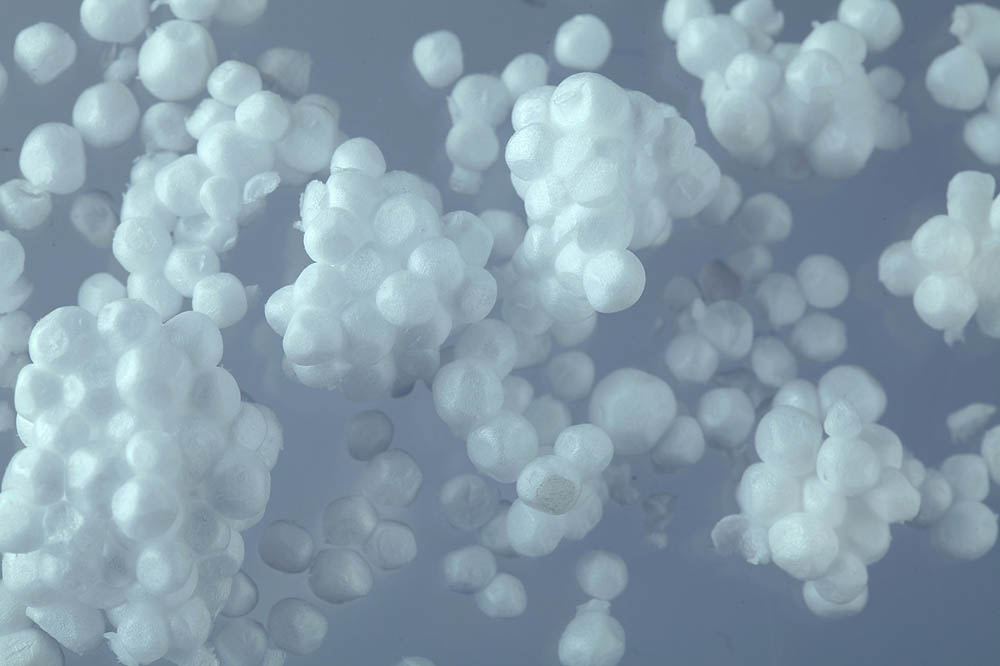
COOPERATION PROJECT BETWEEN INCIEN AND THE ASSOCIATION OF PRODUCERS OF EXPANDED POLYSTYRENE (EPS)
As part of the international association within the framework of the Plastics Strategy, the Slovak Association EPS SR has set a bold voluntary recycling target that in 2025 the recycling rate in Slovakia will reach more than 50% in the field of packaging expanded polystyrene as well as construction.
Part of the achievement of the ambitious goal was the creation of cooperation with the non-profit organization Institute for Circular Economy. The aim of the cooperation was to:
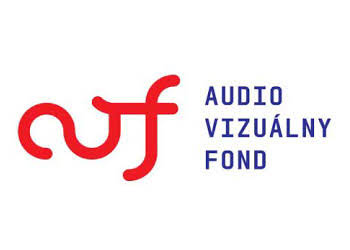
The audiovisual industry carries with it a significant negative ecological footprint, as does other types of industry, human activity. Waste generation as well as the use of energy resources are important.
As an organizational part of the Audiovisual Fund in cooperation with the Institute for Circular Economy, the Slovak Film Agency has prepared a challenge that responds to the need to create a platform for informing, educating and supporting Slovak professionals in the search for sustainable solutions in the production of audiovisual works.
The aim of cooperation is to strengthen its responsibilities in the field of environmental protection.
The output of the cooperation is also the GREEN MANUAL – designed to help and support independent producers and their production teams to reduce negative environmental impacts in their audio-visual production. The manual contains a set of recommendations focusing on the basic areas in film production.
The Audiovisual Fund is a partner of the project.
Na tejto stránke používame súbory cookies. Ak budete pokračovať v prehliadaní webu, predpokladáme, že s nimi súhlasíte. Viac informácií
Nastavenia cookies na tejto webovej stránke sú nastavené na "Povoliť cookies" vám prehliadanie možné skúsenosti. Ak budete pokračovať na používanie tejto webovej stránky bez zmeny nastavenia cookies alebo kliknite na tlačidlo "Prijať" nižšie potom dávate súhlas k tomu.
